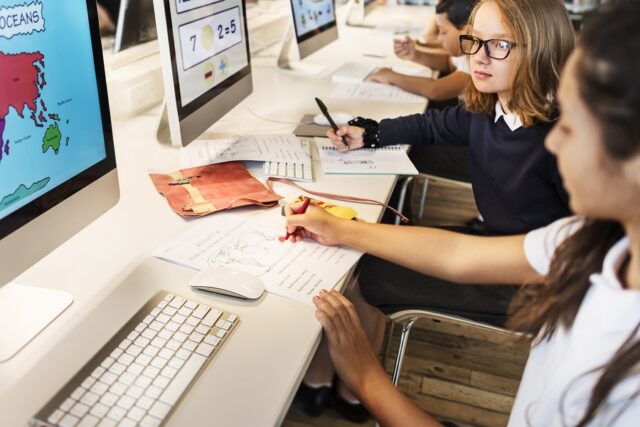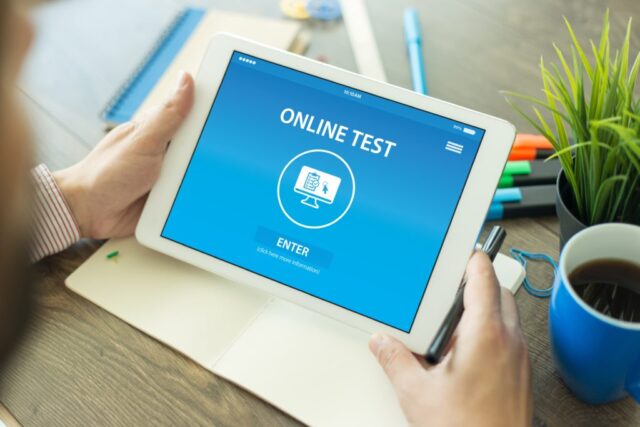
Many have witnessed a significant shift in education methods worldwide in the past few years. Nowadays, it has no geographical boundaries. COVID-19’s only positive effect was its role as a catalyst for pushing it into the digital age due to the pandemic.
There’re expectations that many will soon adopt the new technology into the education sector. They will need robust publisher software to create these digital educational materials. But how will it have an impact on education? Let’s determine how technology could change education in 2024 and beyond.
Personalized Self-Paced Learning

In personalized self-paced learning, learners can study at their own pace and duration based on digital content or video instructions. It’s a busy world out there. Children’s studies can take hours on end, and parents don’t have the time to spend all day with them. Teachers also have to prepare lesson plans, grade tests, and other tasks related to their jobs.
It is nearly impossible for instructors to provide individual attention to each student due to the number of students they teach per class. In this case, personalized, self-paced learning can be an immense advantage. Learning through technology is easy for busy learners and those who grasp concepts at different rates. For example, they can ask an expert about their studies who will give them detailed answers.
Metaverse And Interactive VR
Metaverse is an immersive, interactive learning environment rapidly gaining traction among students. It enables learners to explore virtual worlds, interact with avatars, and engage in simulations. Students can benefit from a unique learning experience in virtual classrooms, schools, or universities. Teachers can also track students’ progress, provide personalized feedback, and assess their performance.
The use of virtual reality (VR) in classrooms is also becoming increasingly popular as it provides students with a new way to learn. Teachers can transport their students to distant places or outer space through it! A VR simulation can enhance the learning experience by bringing life to concepts discussed in class.
AI-Driven Online Assessments

Teachers don’t always have time to give students personalized feedback and suggestions when grading papers. But an AI-driven online assessment can help solve this problem. Not only will grading be faster and more accurate, but you will also provide your students with personalized feedback.
As a result, educators can provide customized instruction to those students who need it the most. Online assessments can also help students with short attention spans by testing their knowledge and understanding. In this way, they can finish a test without getting distracted.
Curriculum Integration of Audiobooks
Since Thomas Edison invented the phonograph in the 1800s, audiobooks have been available. As a result of technical limitations, it took a while to become what they are today. Audiobooks may take center stage in the education sector by 2024, especially for visually impaired students. Additionally, many students, even those without visual impairments, find learning or retaining information easier by listening instead of reading audiobooks.
There are many ways to use audiobooks for both learning and teaching. As a result, students can listen to learning materials while completing other tasks. It can also benefit those from weaker socioeconomic groups who may not have access to print materials or other digital education resources.
Nano-Learning

Nano-learning is an exciting new concept that will hugely impact the EdTech sector in 2024. It enables learners to take quick, short classes focusing on specific topics within a larger subject area. Learners may be able to crystallize their understanding of niche subjects by doing this.
It is not just about the act of learning; educators can use nano-learning to assess students quickly and give them focused feedback on specific topics utilizing the same concept. Both learners and educators can benefit from this learning methodology by focusing their efforts where needed.
AI-Driven Chatbots to Answer Student Queries
In the future, technology’s impact on education through chatbots may help students with homework, learn new skills, and even apply for college. It’s not always possible for parents and educators to answer all learners’ questions. A chatbot can access much more information than a human can. Learners can benefit from this by getting better answers to their questions.
Additionally, AI could help identify subject areas in which the learner needs improvement. Information like this can be helpful when shared with an educator to enhance learning. Moreover, chatbots can give students access to information whenever and wherever they are without waiting for an educator to be available.
Last Thoughts
With the increasing use of digital content in education, people’s approach to consuming this content is also evolving. Good publisher software has made it easy for educators to create and share digital content. Several exciting education impacts on education are coming to the education sector soon, and many will be ground-breaking.







